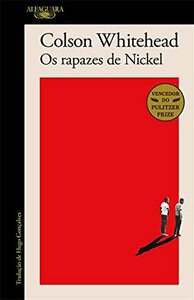You need to sign in or sign up before continuing.
Take a photo of a barcode or cover
dark
emotional
sad
medium-paced
This book is devastating. It tears apart the false promise of equal under the law and the American myth of opportunity tied to hard work. Elwood is hardworking, industrious, and fundamentally good, and yet, he is not only denied opportunity for education and advancement but denied his childhood, and ultimately, his life.
What makes this so difficult to read is Elwood’s belief in the capacity of the world to improve and to right itself, and for those repeated offerings to be met with silence, cruelty, or death. He believes so deeply in civil disobedience, the words of MLK, and the promise of a society where everyone can stay and dine at the Richmond Hotel.
The book evocatively shows the not-so-distant past of Jim Crow and the way that history is misremembered, brushed over, and even forgotten. Like the boarding schools forced upon Indigenous people to separate them from their people, culture, and life ways, these “reform schools” were designed to abuse, suppress, control, and kill Black children. It’s horrific that both of these institutions, cut from similar white supremacist cloths, are not talked about, despite being active in our lifetimes, shuttered recently, with lasting harm to this day.
Though undoubtedly excellent, Elwood, like nearly all Black children and especially Black boys, is denied the simple pleasure of being ordinary. Despite doing everything right, it seems like everything just goes wrong for him. Even within his community, he is shunned for reaching too high and living his values. His only true companion is Turner, who he meets at the Nickel Academy, and who ultimately carries on his name and legacy.
The cruelty of the White House, whose on-the-nose name puts an even finer point on things, was difficult to read through, knowing it was based on reality. The rigged nature of Black life was no clearer than in the boxing matches, being taken “out back,” and the “community service” Elwood and Turner did.
Lastly, the narrative structure was brilliant and crushing. You are lured into the false comfort that at least Elwood makes it through his suffering and ultimately is rewarded with full life, only to understand the twist in the final chapter. There is redemption, but only partial, and for some. And it makes it difficult, even as a reader, to follow King’s message of agape love.
Phrases that stuck with me: “Existed in the capacity to suffer”/ “Justice exists only in theory”
What makes this so difficult to read is Elwood’s belief in the capacity of the world to improve and to right itself, and for those repeated offerings to be met with silence, cruelty, or death. He believes so deeply in civil disobedience, the words of MLK, and the promise of a society where everyone can stay and dine at the Richmond Hotel.
The book evocatively shows the not-so-distant past of Jim Crow and the way that history is misremembered, brushed over, and even forgotten. Like the boarding schools forced upon Indigenous people to separate them from their people, culture, and life ways, these “reform schools” were designed to abuse, suppress, control, and kill Black children. It’s horrific that both of these institutions, cut from similar white supremacist cloths, are not talked about, despite being active in our lifetimes, shuttered recently, with lasting harm to this day.
Though undoubtedly excellent, Elwood, like nearly all Black children and especially Black boys, is denied the simple pleasure of being ordinary. Despite doing everything right, it seems like everything just goes wrong for him. Even within his community, he is shunned for reaching too high and living his values. His only true companion is Turner, who he meets at the Nickel Academy, and who ultimately carries on his name and legacy.
The cruelty of the White House, whose on-the-nose name puts an even finer point on things, was difficult to read through, knowing it was based on reality. The rigged nature of Black life was no clearer than in the boxing matches, being taken “out back,” and the “community service” Elwood and Turner did.
Lastly, the narrative structure was brilliant and crushing. You are lured into the false comfort that at least Elwood makes it through his suffering and ultimately is rewarded with full life, only to understand the twist in the final chapter. There is redemption, but only partial, and for some. And it makes it difficult, even as a reader, to follow King’s message of agape love.
Phrases that stuck with me: “Existed in the capacity to suffer”/ “Justice exists only in theory”
“We must believe in our souls that we are somebody, that we are significant, that we are worthful, and we must walk the streets of life every day with this sense of dignity and this sense of somebody-ness.”
“Like justice, it existed in theory.”
“Like justice, it existed in theory.”
dark
emotional
hopeful
sad
fast-paced
emotional
reflective
sad
tense
fast-paced
Plot or Character Driven:
Character
challenging
reflective
sad
medium-paced
I know going in that a book by Colson Whitehead will destroy me. This book is no different.
dark
emotional
sad
medium-paced
Plot or Character Driven:
A mix
Strong character development:
Yes
Loveable characters:
Yes
Diverse cast of characters:
Yes
Flaws of characters a main focus:
No
challenging
dark
emotional
sad
medium-paced
Plot or Character Driven:
A mix
Strong character development:
Complicated
Loveable characters:
Complicated
Diverse cast of characters:
Yes
Flaws of characters a main focus:
Complicated
Graphic: Racism, Sexual violence, Murder
challenging
dark
emotional
informative
inspiring
medium-paced



